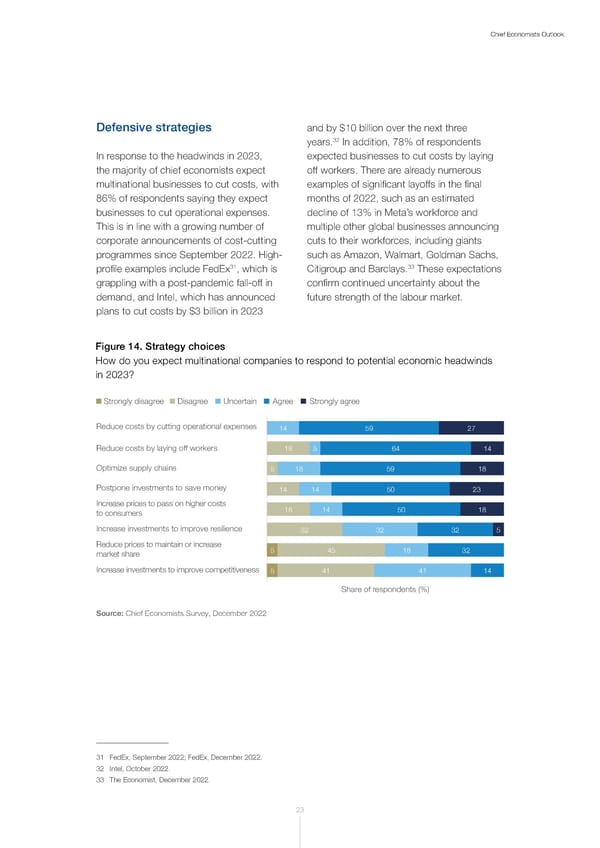23 Chief Economists Outlook Defensive strategies In response to the headwinds in 2023, the majority of chief economists expect multinational businesses to cut costs, with 86% of respondents saying they expect businesses to cut operational expenses. This is in line with a growing number of corporate announcements of cost-cutting programmes since September 2022. High- profile examples include FedEx 31 , which is grappling with a post-pandemic fall-off in demand, and Intel, which has announced plans to cut costs by $3 billion in 2023 and by $10 billion over the next three years. 32 In addition, 78% of respondents expected businesses to cut costs by laying off workers. There are already numerous examples of significant layoffs in the final months of 2022, such as an estimated decline of 13% in Meta’s workforce and multiple other global businesses announcing cuts to their workforces, including giants such as Amazon, Walmart, Goldman Sachs, Citigroup and Barclays. 33 These expectations confirm continued uncertainty about the future strength of the labour market. Figure 14. Strategy choices How do you expect multinational companies to respond to potential economic headwinds in 2023? Source: Chief Economists Survey, December 2022 Strongly disagree Disagree Uncertain Agree Strongly agree Share of respondents (%) Increase prices to pass on higher costs to consumers Increase investments to improve resilience Reduce prices to maintain or increase market share Increase investments to improve competitiveness Postpone investments to save money Optimize supply chains 32 32 32 5 18 14 50 18 14 14 50 23 45 18 32 5 5 41 41 14 18 5 64 14 Reduce costs by laying off workers 5 18 59 18 Reduce costs by cutting operational expenses 14 59 27 31 FedEx, September 2022; FedEx, December 2022. 32 Intel, October 2022. 33 The Economist, December 2022.
 WEF Chief Economists Outlook 2023 Page 22 Page 24
WEF Chief Economists Outlook 2023 Page 22 Page 24